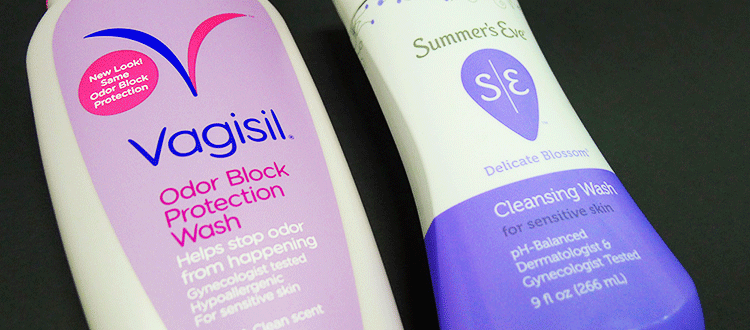What’s Really Shocking About Phthalates in Feminine Douches
 |
|
Ogonnaya Director of |
It took a little bit of time to work on the development of this blog for a number of reasons. As a Black woman living in America in the time of #sayhername and #ifidieinpolicecustody, it sometimes becomes overwhelming to balance how I respond to the information that I learn about threats in the products I use, the places I work and the communities that I live in. I had many of these things on my mind when I learned about an important study that only strengthened by desire to work at the intersection of health and the environment.
Last week, a new study published in Environmental Health reveals that women who use vaginal douching products have much higher levels of phthalates than women who don’t. And women who use vaginal douching products twice a month or more had phthalate levels that were a whopping 152% higher. This news hit me with a ton of bricks. What are the root causes that lead to these higher exposures? What can I do to get the word out and let my friends, colleagues and family members know that this is important? What are the health effects associated with this chemical with this funny name and this practice that I haven’t heard about for years? How can I engage with women in Northern Manhattan that make the tiny section of douches in the bodega a reality?
For years we have known that feminine care products can contain chemicals linked to cancer, reproductive toxicity, hormone disruption and other health problems. And health advocates have targeted phthalates for elimination in consumer products, because the science around their toxicity is well established. For many years, I have wondered how to get my friends and family engaged in a discussion about the chemicals that are in the products that they sometimes consider to be “healthy.”
The study also found that black women have significantly higher levels of phthalates than white women—48% higher. This was a fact that really made me sit up and take note as I read through the abstract at my desk. This was the finding that made me want to scream and understand how I would process yet another threat to my body and environment. This made me think about intersectionality.
Racial disparities are the rule, not the exception, when it comes to toxic chemical exposures. Black women are more likely to use feminine douching products, and use them more frequently, than other women. So the very practice of douching means black women face disproportionate exposure to phthalates and other toxic chemicals in these products.
It is time for policy makers to safeguard Black women’s health against this toxic, environmental and community assault. This latest study on phthalates in douches points to just how outrageous it is to allow toxic chemicals in products women use on the most sensitive parts of their bodies. We need more research into how chemicals we’re exposed to vaginally affect our health.
Rep. Carolyn Maloney (D-NY) has reintroduced the Robin Danielson Feminine Hygiene Products Safety Act, which would authorize research into the health impacts of chemicals used in feminine care products, including feminine douches.
We need the Robin Danielson Act now more than ever. We need systemic change that will protect Black Women’s Bodies against assault and put people at the center of change while creating a world where I can feel safe where I live, work, play and learn. It is not our responsibility to shop our way to healthy beauty norms, but to create a place where women don’t have to choose between health and beauty.






